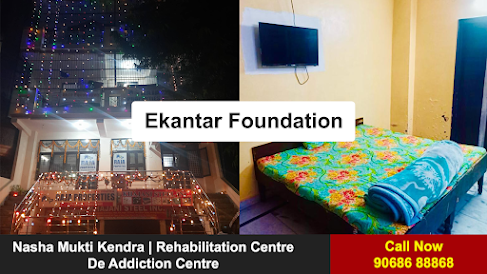The Road to Recovery: A Guide to Rehab Center
Rehabilitation center often known as rehab centers, are facilities designed to help individuals recover from addiction, substance abuse, or other behavioral issues. These centers provide a structured environment and a range of services to support individuals on their journey to sobriety and wellness. In this blog post, we'll explore the role of rehab centers, the types of services they offer, and how they can help individuals achieve long-term recovery.
Understanding Rehab Centers
Rehabilitation centers are dedicated spaces that offer support and treatment for individuals struggling with addiction or other behavioral issues. These centers are staffed with professionals trained in addiction medicine, counseling, and therapy. They provide a safe and supportive environment for individuals to detoxify, learn coping mechanisms, and develop skills to maintain sobriety.
Types of Rehab Centers
There are several types of rehab centers, each offering different levels of care and treatment approaches. Some common types include:
Inpatient Rehab Centers
These facilities provide 24/7 care and support, with individuals residing at the center for the duration of their treatment. Inpatient rehab is recommended for those with severe addiction or who require a higher level of care.
Outpatient Rehab Centers
Outpatient centers offer treatment on a part-time basis, allowing individuals to attend therapy sessions and counseling while still living at home. Outpatient rehab is suitable for those with milder addiction or who need to balance treatment with work or family commitments.
Residential Rehab Center
Residential rehab centers provide a structured living environment where individuals can focus solely on their recovery. These centers offer a range of therapies and activities to support long-term sobriety.
Services Offered at Rehab Centers
Rehabilitation centers offer a variety of services to address the physical, emotional, and psychological aspects of addiction. Some common services include:
The process of removing toxins from the body, often the first step in addiction treatment.
Counseling and Therapy
Individual and group counseling sessions to help individuals understand the root causes of their addiction and develop coping mechanisms.
Medication-Assisted Treatment
The use of medications to help manage withdrawal symptoms and cravings.
Behavioral Therapies
Therapies such as cognitive-behavioral therapy (CBT) to help individuals change negative thought patterns and behaviors related to addiction.
Aftercare Planning: Developing a plan for ongoing support and treatment after leaving the rehab center, including support groups and counseling.
Benefits of Rehab Centers
Rehabilitation centers offer several benefits for individuals seeking recovery from addiction, including
Structured Environment: Rehab centers provide a structured environment that removes triggers and distractions, allowing individuals to focus on their recovery.
Professional Support: Rehab centers are staffed with professionals trained in addiction treatment, providing expert care and support throughout the recovery process.
Peer Support: Rehab centers offer a sense of community and peer support, as individuals share their experiences and support each other in their recovery journey.
Holistic Approach
Rehab center take a holistic approach to treatment, addressing the physical, emotional, and psychological aspects of addiction.




Comments
Post a Comment